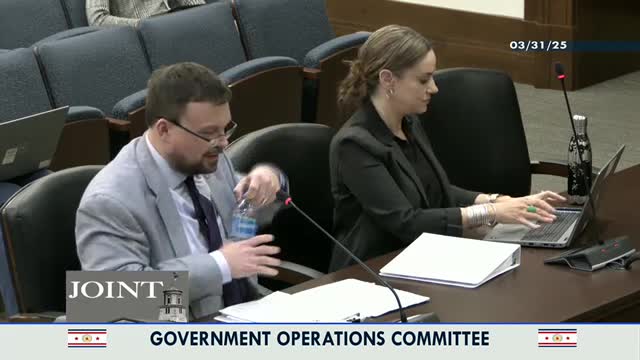Joint committee advances State Board of Education rules on opportunity charters, funding and licensure
Get AI-powered insights, summaries, and transcripts
Subscribe
Summary
The Joint Government Operations Committee on March 31 advanced multiple State Board of Education rules, including an emergency rule to implement “opportunity” charter schools and changes to TISA-related funding, residential mental health facility admissions, authorizer reporting of vacant property, and educator licensure standards.
The Joint Government Operations Committee advanced several rules proposed by the Tennessee State Board of Education on March 31, 2024, voting to give positive recommendations to an emergency charter-schools rule implementing new “opportunity” charter provisions, changes to funding allocation language (moving references from BEP to TISA), updates to admissions for out-of-state residential mental health facilities, and revisions to educator licensure eligibility.
The most contested item was an emergency rule to implement provisions of “public chapter 10 66,” which created an opportunity charter school category serving grades 6–12 and requiring that at least 75% of enrolled students meet the statute’s definition of “at-risk.” Nathan James of the State Board of Education told the committee the emergency rule was necessary so applicants could meet statutory application deadlines: a letter of intent by 12/03/2024 and a full application by 02/01/2025 for schools to open in the 2026–27 school year. James said the rule also sets first-year funding treatment when a student transfers to an opportunity charter in a different LEA: “your TISA allocation is based on what it would have been in [the home LEA]…and then once you're there in your second year, that TISA allocation would change for [the authorizer LEA],” he said.
General counsel Rachel Soupey told the committee the rule’s enrollment lottery preference order “is set out in the statute, so that is not an area where we would have discretion to make any changes.” Committee members pressed department staff about how quickly funding follows a student who leaves a charter and returns to a traditional public school; Jack Powers of the Department of Education explained TISA is funded on prior-year enrollment and does not produce instantaneous transfers within the same school year.
Other education items advanced: revisions to the residential mental health facilities rule to align with public chapter 884 (changes included removing a minimum-15-Tennessee-students threshold and amending enrollment/IEP timing requirements); updates to charter-authorizer annual reporting to add timelines and definitions for vacant and underutilized property reporting (to match public chapter 923); and a licensure rule broadening acceptance of degrees from nationally accredited institutions recognized by CHEA or the U.S. Department of Education.
Committee action and context - The committee took a voice vote in the House on each item and a roll call in the Senate. The emergency opportunity-charter rule moved forward with a positive recommendation; the clerk recorded the Senate as having five ayes and one no on that item. Residential mental health, charter authorizer reporting, and educator licensure rules also moved forward with positive recommendations during the same meeting.
Why it matters The emergency charter rule implements a new statutory school category intended to serve high‑needs students and affects enrollment preferences and how the state allocates TISA funding during a student’s first year at a charter in a different district. Changes to authorizer reporting and property disclosures affect how LEAs and potential charter operators identify and make available underutilized facilities. The licensure change expands the pool of degree-granting institutions whose graduates may qualify for Tennessee educator licenses.
